Flying can be stressful enough without worrying about food faux pas. Whether you’re enjoying airline meals or bringing your own snacks, how you eat affects everyone in that metal tube soaring through the sky. Good dining manners make flights more pleasant for you, your seatmates, and the hardworking crew. Here’s how to be a considerate diner at 30,000 feet.
Skip the Smelly Stuff
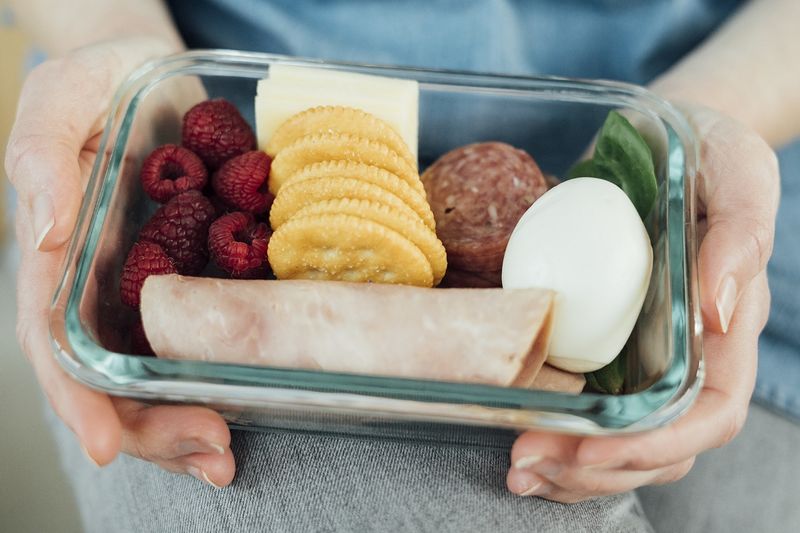
The recycled air on planes circulates every aroma throughout the cabin. That tuna sandwich might taste delicious to you, but your seatmates might be fighting nausea for the next three hours. Strong-smelling foods like boiled eggs, kimchi, durian, or curry dishes should stay grounded. Pack milder options instead—turkey sandwiches, pasta salads, or fresh fruits make excellent alternatives that won’t offend nearby noses. Remember, what smells fine in an open kitchen becomes concentrated in a sealed aircraft. Your considerate food choices help maintain cabin harmony.
Crunch Quietly, Please
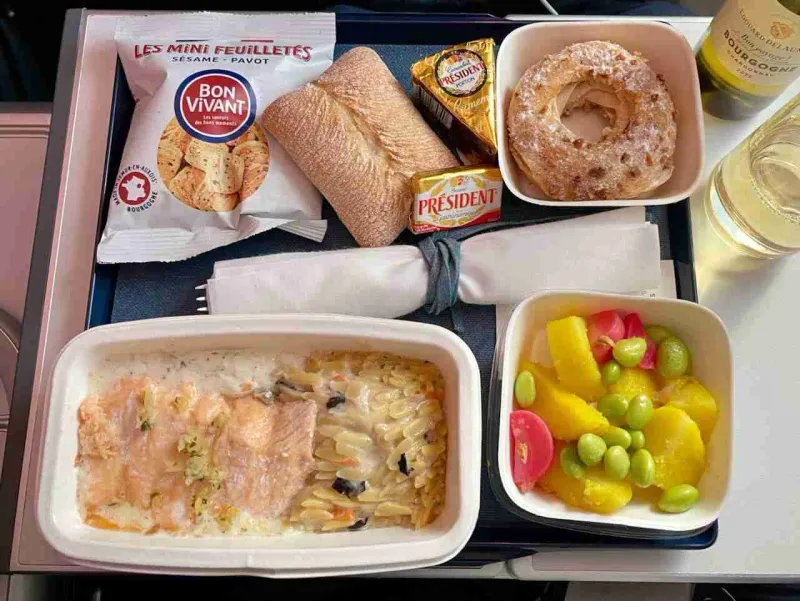
Potato chips might be the perfect snack on solid ground, but at 35,000 feet, each crunch echoes like thunder. The confined space amplifies every bite, especially during quiet flight periods or when neighbors are trying to sleep. Soft foods like bananas, yogurt, chocolate, or pasta salads make ideal in-flight choices. If you absolutely must have something crunchy, eat slowly and mindfully to minimize the noise impact. Your seatmates will silently thank you for choosing quieter foods, particularly on overnight flights when many passengers hope to rest.
Contain Your Mess
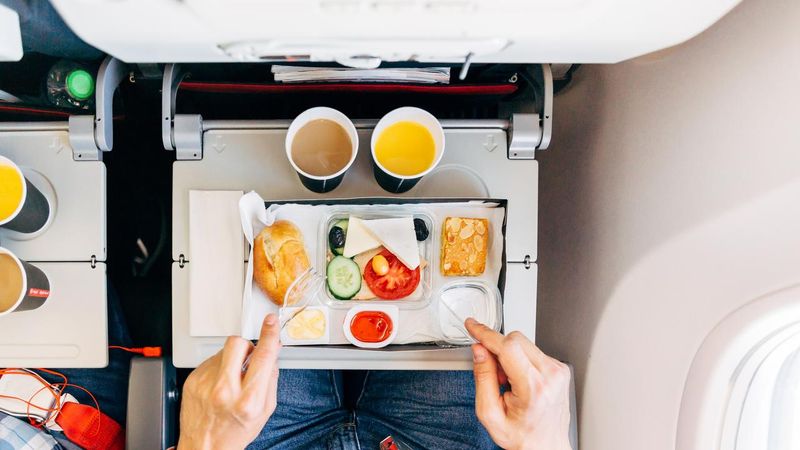
Airplane tray tables rank among the germiest surfaces in travel. Adding your personal food debris makes matters worse for everyone, including the cleaning crew. Use napkins as placemats and catch crumbs in wrappers whenever possible. Bring a small plastic bag for your trash if you’ve packed your own meal. Wipe down your area after eating—travel-sized sanitizing wipes are perfect for this purpose. Flight attendants appreciate passengers who maintain tidy spaces. A clean area also means you won’t accidentally transfer food to your clothing or electronic devices.
Time Your Meal Properly
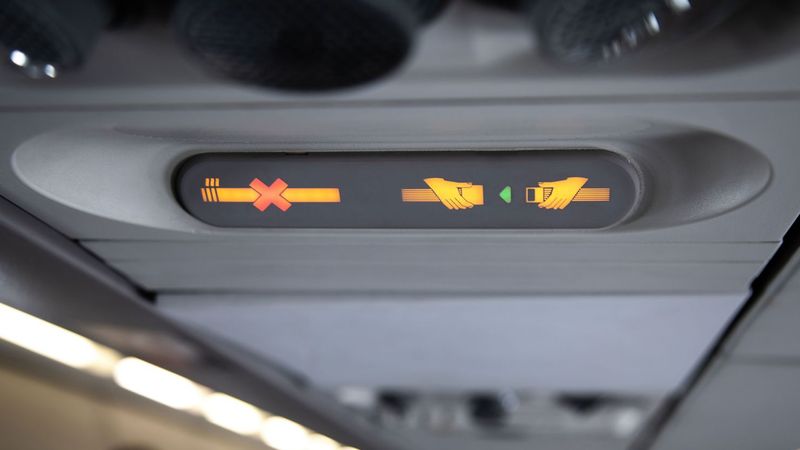
Safety comes first—which means no eating during critical flight phases. Turbulence can send food and drinks flying, creating hazards and messes throughout the cabin. Wait until the seatbelt sign turns off before unwrapping your meal. Similarly, stow everything away when the captain announces descent. This timing isn’t just about etiquette; it’s about preventing injuries from flying objects during unexpected bumps. Flight attendants appreciate passengers who respect these boundaries. Their job becomes much easier when travelers follow timing protocols for meals and beverages.
Open Packages Gently
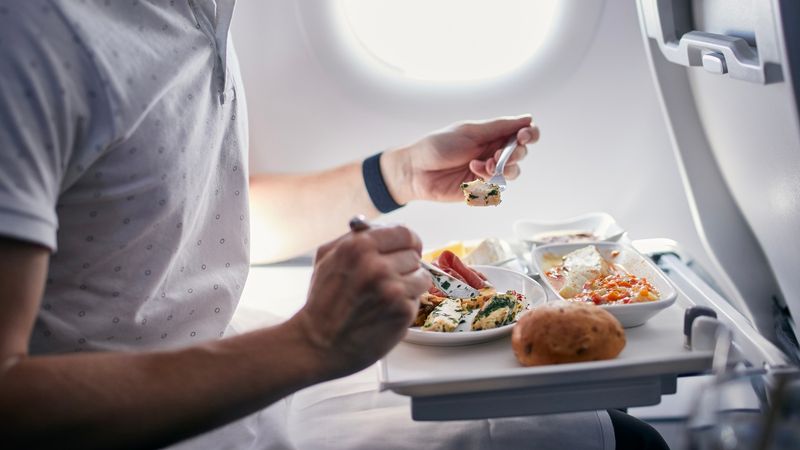
That satisfying rip when opening a snack package sounds dramatically louder in a quiet airplane cabin. Fellow passengers trying to sleep or concentrate will notice every tear and crinkle. Take time to open food wrappers slowly and deliberately. Some travelers even prepare by opening snacks before boarding or requesting assistance from flight attendants for particularly stubborn packaging. For overnight flights, consider transferring snacks to quieter containers before your journey. Ziplock bags make excellent noise-reducing alternatives to original packaging when you’re planning ahead.
Handle Trash Immediately
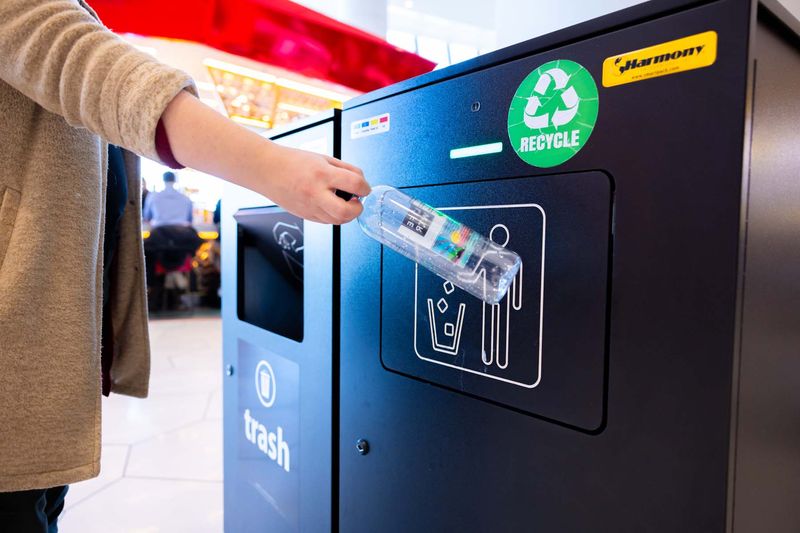
Nothing’s worse than discovering someone’s abandoned apple core or used napkin in the seatback pocket. Flight attendants aren’t personal maids—they’re safety professionals who shouldn’t have to handle your sticky leftovers. Keep all wrappers and containers until flight attendants come through with trash collection. On longer flights, flag down crew members rather than letting garbage accumulate in your area. Many experienced travelers bring small plastic bags specifically for containing their trash. This simple preparation keeps your area clean and makes disposal efficient when the opportunity arises.
Respect Spatial Boundaries
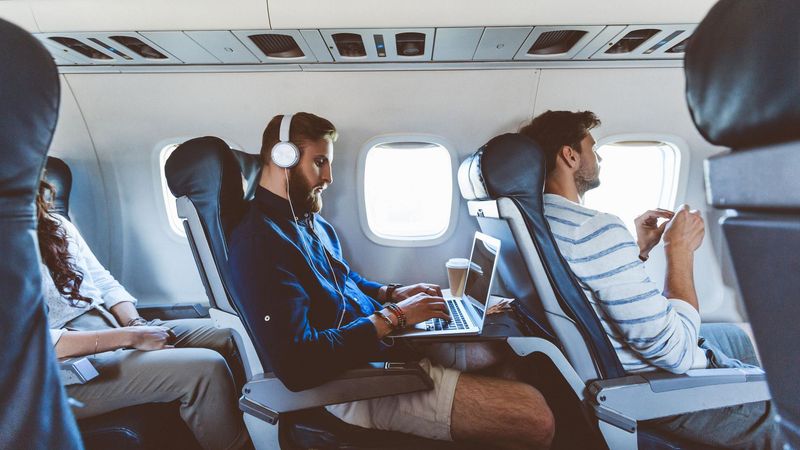
Airplane seating arrangements weren’t designed with gourmet dining in mind. Your eating radius should never extend beyond your own seat area—no matter how delicious that pasta salad might be. Keep elbows tucked in while cutting food. Position drinks securely in holders to prevent spills onto neighbors. Be especially mindful in economy class where quarters are tightest and boundaries easily crossed. When opening food containers, angle them toward yourself rather than sideways toward seatmates. This small adjustment prevents accidental splashes and food particles from landing where they don’t belong.
Control Your Media Volume
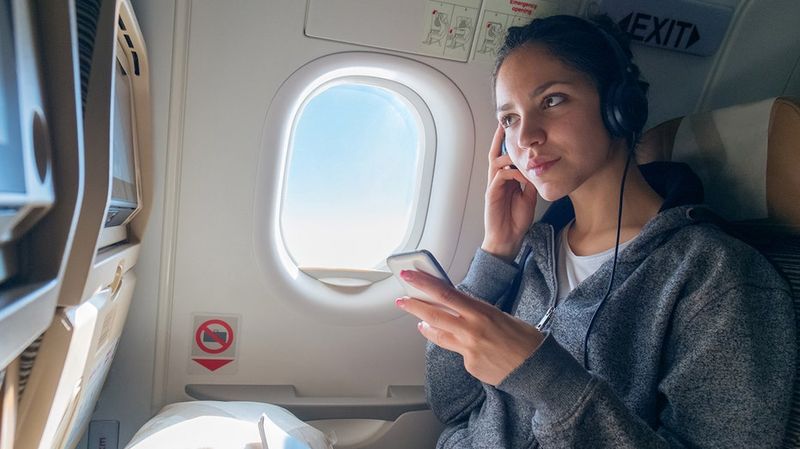
The crunching of food becomes infinitely more annoying when accompanied by blaring action movie explosions. Headphones are non-negotiable when enjoying entertainment during meals—or anytime on flights. Even with headphones, check your volume by temporarily removing them. What seems reasonable to you might be leaking sound to nearby passengers. This courtesy becomes especially important during overnight flights or meal services. Remember that noise-canceling headphones might make you less aware of your own chewing sounds. Eat slowly and mindfully to avoid becoming the unintentionally loud diner everyone tries to ignore.
Bring Backup Wipes
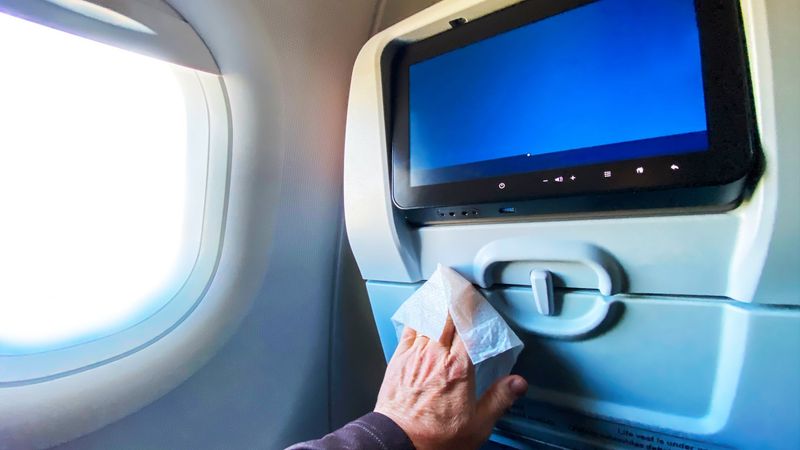
Airplane bathrooms often run out of paper towels during long flights. Walking back to your seat with wet hands isn’t ideal when turbulence hits, nor is wiping greasy fingers on your clothing. Pack travel-sized hand sanitizer and wet wipes in your personal item. These essentials let you clean sticky fingers without multiple bathroom trips. Many experienced travelers also bring individually packaged towelettes specifically for pre- and post-meal cleanup. This preparation shows consideration for both yourself and fellow passengers. Clean hands mean fewer germs spread throughout the cabin and less residue on shared armrests.
Thank Your Flight Crew
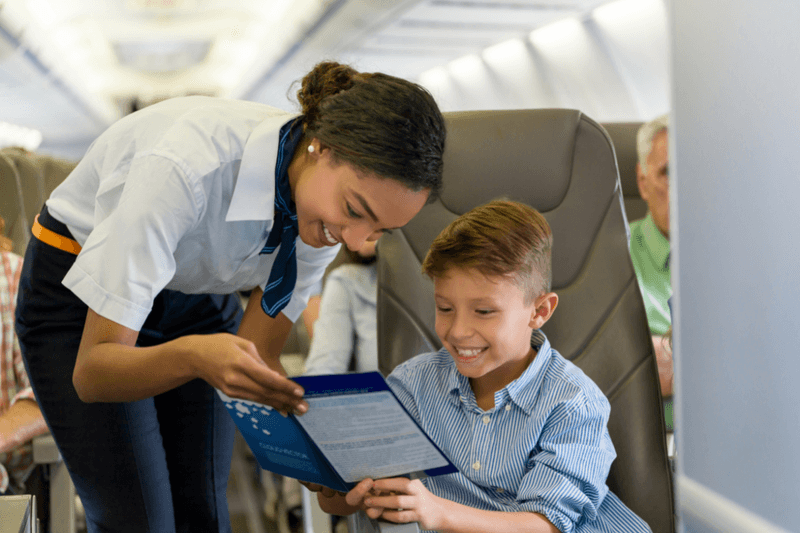
Flight attendants juggle safety protocols, passenger needs, and food service in a moving vehicle—often while dealing with jetlag themselves. A simple ‘thank you’ acknowledges their hard work under challenging conditions. When receiving meals or beverages, make eye contact and express gratitude. Remove headphones when crew members are serving you. These small gestures of respect make their demanding jobs slightly easier. Remember that flight attendants control many comfort factors of your journey. Treating them with kindness often results in more attentive service throughout the flight—perhaps even an extra snack or beverage when supplies allow.



